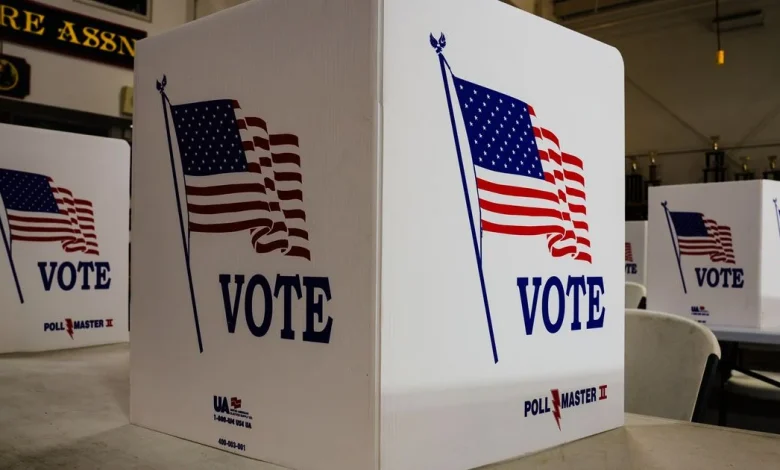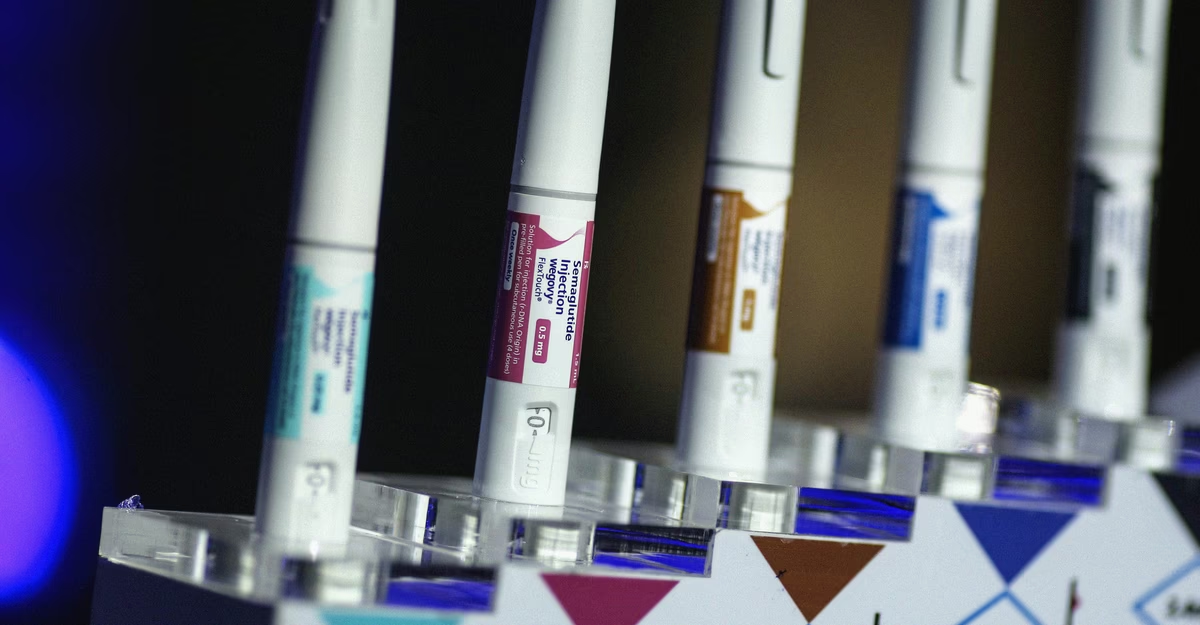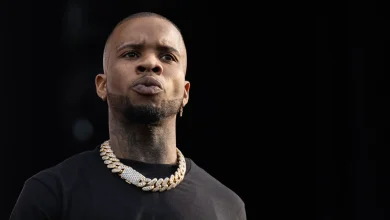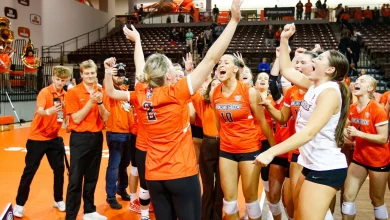Municipal elections across North Carolina will determine local leaders. Here’s how and where to vote

Most of North Carolina’s 551 cities, towns and villages have elections Tuesday that will help decide local leadership for years to come.
Voters in every big city in the state except for Raleigh, as well as in most of North Carolina’s suburbs and small towns, will be choosing who they want at the helm.
City or town councils and commissions make decisions on how and where — or whether — to allow new developments, build new parks, repair crumbling roads and sidewalks, implement new crime-and-safety policies, host holiday festivals or pick up yard trash. Fights over taxes, spending and social issues also can come up.
Here’s how to find out more about the candidates in your neck of the woods, and details about how and where to vote.
How can I tell if my city or county has an election?
People who want to check if their city or county is voting on Tuesday can find an interactive, county-by-county map at the North Carolina Board of Elections website.
If you want to learn the specific races you’ll be eligible to vote in, and who’s running for them, you can find a sample ballot by looking up your voter registration online.
How can I learn more about the candidates?
Municipal elections are usually nonpartisan — meaning the ballots won’t list any candidate’s political affiliation — but county-level Republican or Democratic party groups frequently endorse their favored candidates. Other candidates run as true independents, endorsed by neither political party.
Special interest groups, business groups, community organizations, political action committees and local members of the state legislature also often make endorsements — which can be helpful to people wondering who they might want to vote for or against.
Candidates often have their own websites or social media pages stating their positions on key issues.
Where do I vote? And when?
Early voting is over, so people will need to go to their assigned precinct on Tuesday to cast a ballot.
If you don’t know where your polling place is, look at your physical voting card or go online to look up your voter registration details.
Polls will be open from 6:30 a.m. until 7:30 p.m. Anybody who’s in line by 7:30 p.m. will be allowed to cast a ballot.
Will voters need to show an ID?
Yes, voters must show photo identification to vote in North Carolina. People who don’t have a driver’s license or other acceptable form of ID can fill out an exemption form to ask for their vote to be counted, but that’s not guaranteed to be approved.
Also, people whose registrations were challenged as part of unsuccessful Republican efforts to challenge the results of the 2024 election for a North Carolina Supreme Court race may need to specifically use their driver’s license, and not another type of ID, to fix those issues.
Does my vote matter?
Voter turnout in municipal elections is often quite low, meaning that the people who do show up to vote have an outsize amount of influence.
It’s not uncommon, particularly in small towns, for elections to be decided by only a handful of votes — or even to end in ties. When there is a tie, state law requires that the winner be chosen by drawing lots, flipping a coin or some other “method of random selection.”
In Sylva, home to Western Carolina University and about 2,600 permanent residents, local officials have had to resort to coin tosses to settle tied town council elections twice in the past decade. Similar results have happened in plenty of other small towns dotting the state in recent years. One additional voter could’ve made the difference in any of them.
What should I do if I still have a mail-in ballot?
If you still have a mail-in ballot at home, you have two surefire options: Throw it away and go vote in person instead, or fill it out and hand-deliver it to your county elections office. Don’t take it to your polling place, since they’re not allowed to receive those types of ballots.
At this point, it’s likely too late to put your ballot in the mail and ensure that it’ll be delivered by Tuesday. There used to be a grace period after the election for mail-in ballots to arrive, but the state legislature eliminated that in 2023.
There are more instructions online to make sure you fill it out and return it correctly, so that your vote gets counted.
What should Wake County voters know?
The state’s most populous county will have dozens of races on the ballot for seats that will determine the pace and direction of growth in the Raleigh suburbs, among other issues.
Wake County residents will be asked to vote for mayor and/or and town council members in Angier, Apex, Cary, Fuquay-Varina, Garner, Holly Springs, Knightdale, Morrisville, Rolesville, Wake Forest, Wendell and Zebulon.
In Cary, the seventh-largest municipality in North Carolina, the mayor isn’t up for reelection. But half of the town council is. Incumbent Jennifer Robinson faces challenger Brittany Richards in District A. Challengers Bella Huang and Renee Miller face off in District C to replace Jack Smith, who’s stepping down after 36 years in office. And in the at-large seat, incumbent Carissa Johnson faces challenger Marjorie Eastman.
The lone Wake County municipality without any election on the ballot is Raleigh, which recently made the switch to even-year elections. A handful of smaller rural counties, mostly in western North Carolina, have also made similar decisions.
Moving all elections to even-numbered years can save money for local taxpayers. But most parts of the state have kept their municipal races in odd-numbered years. Proponents say off-year elections help guarantee that only the people who are truly passionate about local issues are the ones shaping their town council — and that it also helps keep those races at least somewhat less partisan than races for Congress or president.
What should Durham voters know?
Incumbent Mayor Leonardo Williams is seeking a second term. He has led the Bull City since 2023. He faced four challengers in last month’s primary and won more votes than all of them combined. Williams now faces the best-performing one of those challengers in a one-on-one race: Anjanee Bell, daughter of former mayor Bill Bell.
Durham Mayor Leonardo Williams faces a challenge from the daughter of long-time former mayor Bill Bell.
In the city council races, two incumbents — DeDreana Freeman in Ward I and Mark-Anthony Middleton in Ward II — face tough reelection challenges.
Freeman and Middleton each came in second place in their primary elections, trailing behind challengers seeking to replace them: Matt Kopac in Ward I and Shanetta Burris in Ward II. But no candidate in either primary won 50% or more of the vote, so the races could go either way on Tuesday.
In Ward III, incumbent Chelsea Cook faces Diana Medoff. Cook won the primary last month by a large margin over Medoff and other challengers.
What should Cumberland County voters know?
Fayetteville Mayor Mitch Colvin is seeking reelection. He faces a challenge from one of his colleagues on the city council, Kathy Keefe Jensen, who placed second in last month’s 10-person primary. Five of the city’s nine city council seats are also up for grabs.
Kathy Keefe Jensen, a city councilwoman, is challenging Mitch Colvin for Fayetteville mayor.
The Cumberland County municipalities of Eastover, Falcon, Godwin, Hope Mills, Linden, Spring Lake, Stedman and Wade also have races on the ballot.





